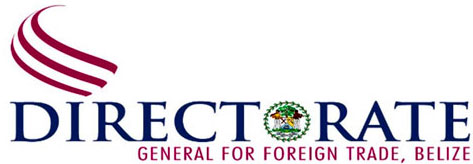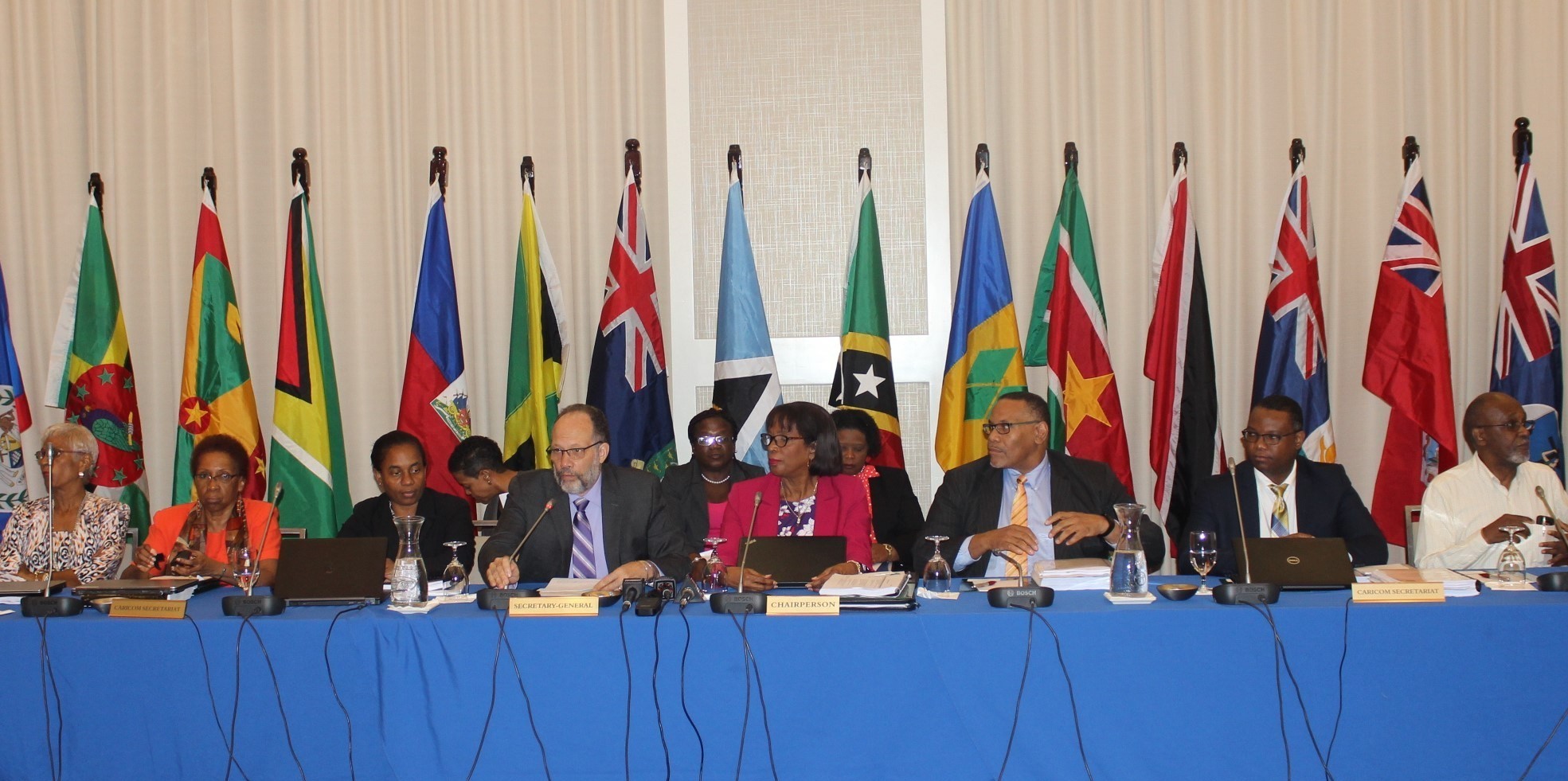The 48th Regular Ministerial Meeting of the Council of Trade and Economic Development (COTED) was recently held in Georgetown, Guyana from 29th to 30th April, 2019. COTED, a collection of Trade Ministers designated by member states, is the organ of the Caribbean Community tasked with the responsibility of promoting trade and economic development in the Community. As per Article 15 of the Revised Treaty of Chaguaramas, some of the specific responsibilities of COTED include: a) promote and oversee the development and operation of the CSME, b) promote measures to enhance production, quality control and marketing of goods, c) promote measures to accelerate structural diversification of industrial and agricultural production, d) promote measure for the accelerated development of service, e) develop policies for environmental protection and enhanced transportation, etc. The agenda is often extensive due to the wide mandate of the COTED and the lack of supranational power of the CARICOM Secretariat. Member states are responsible for driving the COTED agenda forward, and are only provided with technical support from the Secretariat.
Belize was well represented at the 48th Regular Meeting by Chief Executive Officer in the Ministry of Investment, Trade and Commerce, Mr Duane Belisle, the Director General in the Directorate General for Foreign Trade (DGFT) Mr. Andy Sutherland and Senior Trade Economist Mr. Richard Reid. As per the norm, a wide array of trade matters were addressed throughout the course of the meeting, with Belize paying special interest to several thematic areas that were deemed to have a greater effect on the future policy landscape of the region and the economic performance of Belize.
CARICOM Secretary General Ambassador Irwin LaRocque opened the meeting by stressing to the COTED the importance of making the CSME work for all:
“An urgency to complete the agreed measures and make the CSME a lived reality for our citizens, has been the hallmark of the recent discussions among our Heads of Government. As the Council tasked under the Revised Treaty to “promote the development and oversee the operation of the CSME” you have a pivotal role to play in ensuring that we accomplish the goals in that regard.”
In elaborating on one of the big ticket items for Belize, the Common External Tariff (CET) and Rules of Origin Review, on the current agenda, the Secretary General shared the following:
“A fundamental element of the Single Market is the Trade in Goods. A review of the CET and the Rules of Origin, the Community’s two major trade policy instruments, has been undertaken to assist in increasing the effectiveness of the Trade-in-Goods Regime. It aims to bring those instruments up to date, given the changes to our production structures that have taken place since they were first drafted.”
The DGFT, Belize’s national authority that fosters sustainable development and inclusive economic development through a responsive trade policy, has devised a short term work program to prioritize the follow up actions needed from 48th COTED Decisions. Although the DGFT takes lead on the regional agenda at COTED, the depth of the organ’s mandate requires inter-ministerial participation at the national level to execute the agreed decisions. This participation is fostered through the Cabinet mandated Trade Technical Team, which features a cross-section of experts across the government of Belize.
Some of the areas of priority in the post-COTED work program are as followed:
- Consultancy on the Review of the CET and Rules of Origin – This final report by BKP Consulting sets out proposals for revisions to the CARICOM Common External Tariff (CET) and the associated Rules of Origin (ROOs) to advance regional integration and free circulation of goods within the CARICOM Single Market and Economy (CSME), and to encourage industrial development and the emergence of production structures that are more responsive to changing global and regional market conditions. It reflects extensive consultations within the region, including a regional stakeholders meeting, and helpful comments by Member States on a draft report. Belize has already held one consultation with the Customs Department following the release of the final report and will convene a team of public and private sector experts to ensure consultation is wide as possible. The Government of Belize will defend the interest of the private sector by ensuring that any prospective change to the regional trade policy and environment contexts the realities of the Belizean productive sector experience.
- Implementation of the Trade Facilitation Agreement (TFA) – On 22 February 2019, WTO Members marked the second anniversary of the entry into force of the TFA, and took stock of the implementation of the Agreement in the two years since taking effect. To date, one hundred and forty-one out of one hundred and sixty-four countries have ratified the TFA, accounting for 86 percent of the WTO membership. The remaining twenty- two countries comprise developing and Less Developed Countries (LDCs), nine of which have neither ratified the TFA nor notified Category A, B and C commitments to the WTO. Belize has notified both its definitive implementation dates for Category B commitments and its indicative dates for Category C. With the help of UNCTAD, Belize will be drafting its National Trade Facilitation Implementation Plan to roll out its work program for TFA implementation over the medium to long term.
- 8th CARICOM–US Trade and Investment Council – The Trade and Investment Framework Agreement (TIFA) signed between the Caribbean Community (CARICOM) and the Government of the United States (US) in May 2013, provides that the two sides endeavour to meet every two years in the context of the Trade and Investment Council (TIC) established under the TIFA, to discuss trade and investment issues of mutual interest. CARICOM and the US last met in May 2016, in the Seventh Meeting of the Council.
The US has always linked Caribbean Basin Trade Partnership Act (CBTPA) benefits for qualifying countries like Belize to other areas like the protection and enforcement of Intellectual Property Rights (IPR). In particular, infringement in those CARICOM Member States, of copyright existing in United States audio-visual products and broadcasts, has been the issue of major concern by the US in recent years. It can, therefore, be expected that the Office of the United States Trade Representative (USTR) will signal interest in having included in the agenda, the treatment by CARICOM Member States of IPR of US rights holders. Belize has made significant advancement in the protection of IPRs, with its signing of six international IPR treaties over the past year. It is expected that these signings will keep Belize in good standing with the US and retain Belize’s market access rights under the CBTPA.
As Belize proceeds with the implementation of its first National Trade Policy, it is expected that the language and conversation of foreign trade will become mainstreamed into the daily Belizean consciousness. When the average Belizean begins to understand how the economy grows, the propensity for local participation in the development experience will be engendered.
Photo Credit : CARICOM TODAY

